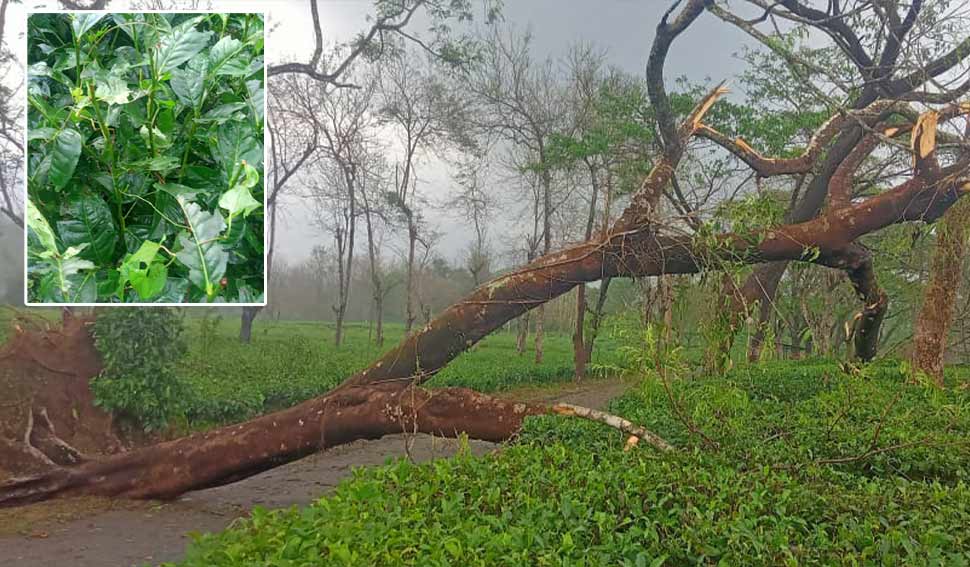Rain, hailstorm affect tea production in Barak Valley, planters apprehend 50% crop loss

Tea planters in Assam’s Barak Valley apprehended 50 per cent crop loss due to hailstorms and heavy rainfall in different parts of the Valley since the last week of April.
“We are apprehending 50 per cent crop loss in May in comparison to the crops harvested in the same period last year,” said Sorodindu Bhattacharjee, secretary, Tea Association of India (TAI), Barak Valley branch.
Tea production declined in Barak Valley by 1.4 million kgs in 2023 due to unfavourable weather conditions. This had naturally hit the industry, already plagued by various other reasons and the tea producers had to incur revenue loss.
The storm coupled with repeated hail in the last few days had its devastating effect in the tea garden areas of Cachar, Karimganj and Hailakandi districts.
Bhattacharjee said a hailstorm coupled with rain on the night of April 30 has severely damaged the tea plantation of Cachar, Karimganj and Hailakandi districts of Barak Valley. “Thousands of hectares of tea plantation have been damaged due to hail and storm, caused leaf laceration and leaf fall in LP, MS and UP area, shade trees were fallen, electric lines and poles uprooted, roofs of dwelling houses, factory and store-building have flown away in many places,” he said.
“Our member gardens in Hailakandi namely Aenakhal Tea Estate, South Cachar Tea Estate, Toopacherra Tea Estate, Manipur Tea Estate, Koya Tea Estate, Burni Braes Tea Estate and Kunchanpore Tea Estate of Hailakandi district suffered substantially,” he also said.
“Our member tea gardens from Dwarbund (Chatla-bheel) area of Cachar district namely Iringmara Tea Estate, Borojaalingha Tea Estate, West Jalingha Tea Estate, Kailashpur Tea Estate and Dwarbund Tea Estate have also suffered extensive damage due to cyclonic storm coupled with hail in the night of April 30,” Bhattacharjee said.
In addition to this, the erratic supply of electricity during April in the tea gardens of Barak Valley has caused tea gardens to depend on captive power generation, resulting in abnormal and uneconomical increases in the cost of production.
“The adverse situation also compounded with the dismal condition of surface transport connecting Barak Valley with Guwahati via Meghalaya, especially due to frequent landslides in Sonapur section. Badarpur-Lumding section of the railway line near Lumpore is under repairing, several trains connecting Barak Valley with the mainland has been cancelled in last few days,” Bhattacharjee also said.
“We are apprehending dislocation of industrial inputs and dispatched of produced tea of the Valley during the coming rainy season,” he further said.
“The cumulative effect of storm damage, hail damage, non-availability of regular quality electric supply and uncertainty in transportation off inputs and outputs during this pick plucking season putting a question mark in the sustainability of tea industry in this region,” he added.
Over the 200 years old tea industry has become weak and vulnerable
Heavy rainfall has badly hit the start of the new tea season. Tea producers in the country’s top-producing state are a worried lot now as they are expecting production of first flush tea to be lower by around 50 per cent this year compared to last year.

Leave a Reply